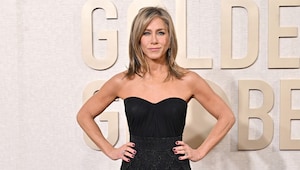The surprising truths about Gen Z—the world’s favourite punching bag
Spoiler: we’re not the problem, you just don’t like being called out.

I’m not the poster child for Gen Z, but I’m not an outlier either. I just know there’s far more to us than matcha, sourdough, anxiety and situationships—and the rest of my “batch mates” agree.
Generational discourse has always been a tug of war, but the latest spark came from Ananya Panday on Twinkle Khanna and Kajol’s infamous talk show, where she voiced what many of us already know deep down. The assumption that Gen Z floats through life clueless and fragile has somehow taken hold, and suddenly every family WhatsApp forward and workplace gripe circles back to this idea that we’re either too dramatic, too sensitive or too uninformed to handle the real world. Except that isn’t true in the slightest.
On the show, Panday pointed out that Gen Z actually knows far more than we get credit for. She spoke about emotional awareness and the nuance with which younger people understand themselves. Twinkle Khanna chimed in with her view that Gen Z is traumatised by everything, to which Panday countered by calling us the first generation that openly addresses feelings, mental health and freedom of expression. Whether that sounds like praise or critique depends on who’s listening, but one thing stands tall: Gen Z is leading conversations that older generations never felt they were allowed to have.
We are a generation that sets boundaries and refuses to apologise for wanting clarity, respect or transparency. Older generations tend to label that as laziness or entitlement, but it comes from understanding the importance of personal limits. This is the same generation that doesn’t accept a half-baked response simply because a boss said so. We want context, we want better systems and we want healthier workplaces. That desire for accountability is seen as rebellion only by those who were taught to keep their heads down.
Millennials, despite being only a decade or so older, often expect Gen Z to adjust to the norms they inherited. But the real conversation is whether millennials and boomers are adjusting to us. Social dynamics have changed completely. Access to information, exposure through social media and a global interconnectedness have shaped us into people who are informed, vocal and unafraid to articulate discomfort.
The criticism that Gen Z is “too emotional” ignores the fact that millennials and boomers were conditioned to bottle everything up. Silence was their survival method, not their preference. Gen Z simply decided that the generational curse of emotional suppression ends with us. And yes, that means we speak up. It means we walk away from situations that don’t serve us. It means we refuse to perform submissiveness to make someone else comfortable.
The infamous Gen Z stare, the trending vocabulary, the unapologetic TikTok energy, the openness about therapy and burnout, the refusal to glamorise overworking—these are markers of a generation that understands itself deeply. We’re shaping culture in real time. The First Lady of New York City is Gen Z. Some of the biggest podcasts in the world are run by Gen Z. The most viral dialogues, debates, memes and movements stem from Gen Z. You may roll your eyes, but the influence is undeniable.
Words like overstimulation get thrown around as if they’re punchlines, but they reflect the reality of a generation that has grown up with unprecedented sensory input. Instead of shutting down, we talk about it. We name what affects us. We analyse everything from world politics to pop culture with a level of awareness that older generations call excessive—only because they never had the tools to do it themselves.
So yes, we are expressive. We are boundary-setters. We are loud when necessary and reflective when needed. And we know far more than the world assumes. Gen Z isn’t the most emotional generation—we’re simply the first one with the courage to say out loud what everyone else felt but never voiced.
PS: Make sure to whisk your matcha in ‘W’ and ‘M’ motions, with room-temperature water. And if you need suggestions on where to buy your first pair of sneakerinas, feel free to contact me!
Lead image credit: Getty Images
Also read: How long should you wait for the boy you're seeing to ask you out?
Also read: 9 fun hobbies to help you break your screen addiction and actually enjoy real life again
more from Life

NAAR and Quintonil: Bringing a taste of Mexico to the Himalayas

This Worli café is all about comfort, caffeine, and slow sips

Elie Saab brings couture-inspired luxury residences to India

Not a drill: the plot of the third 'Game Changers' book about Ilya and Shane just dropped!

What we know about 'The Drama', the Zendaya–Robert Pattinson film that’s keeping its cards close

Sorry, not sorry—over-apologising is holding you back and here’s how to fix it

The 75 hotter fitness challenge proves you don’t need burnout to build better habits

Inside the high-street sound machine: What Zara and H&M playlists are really doing to your brain

Can “friendfluence” save dating?

These five chic haircuts make thin hair look thicker and fuller
